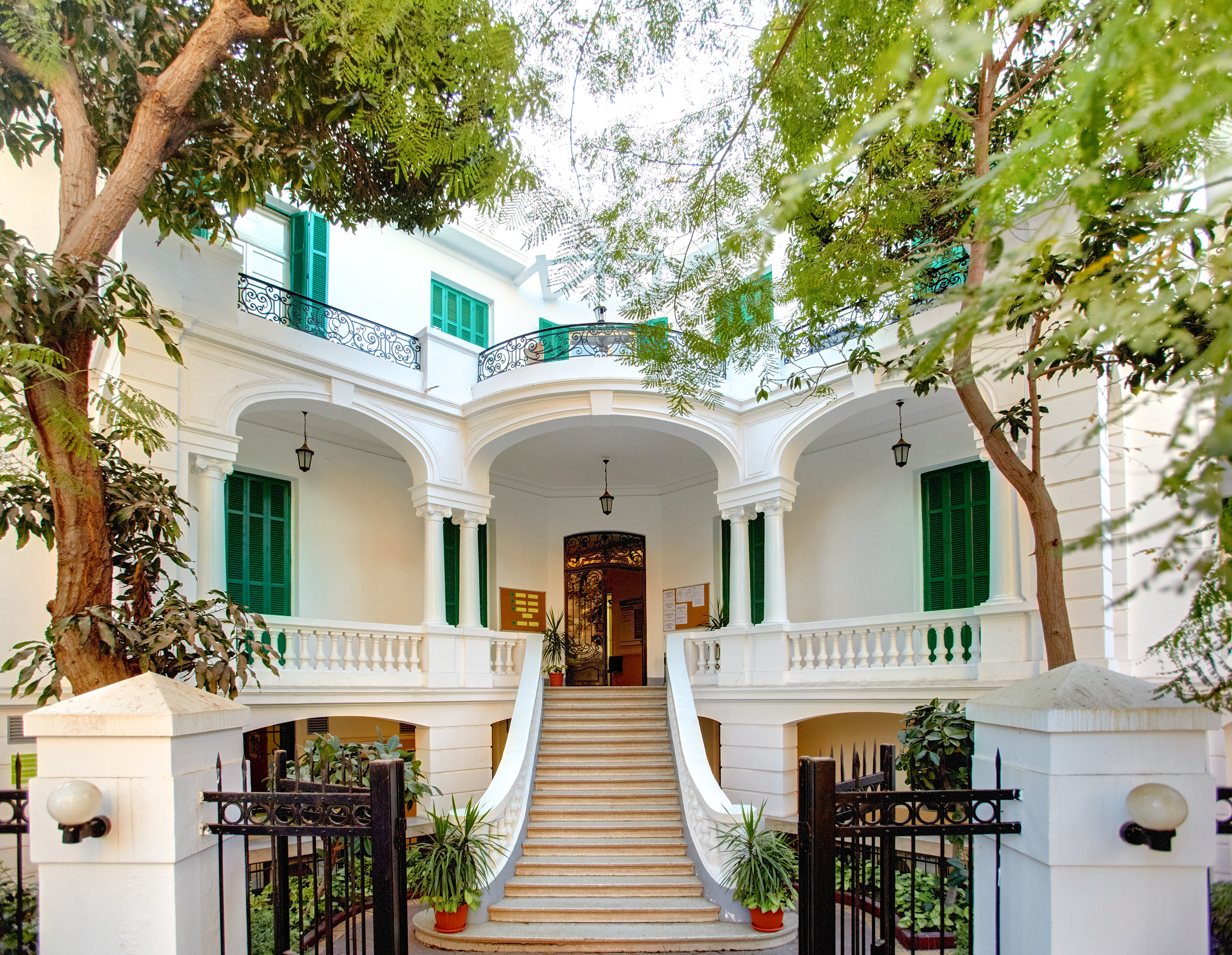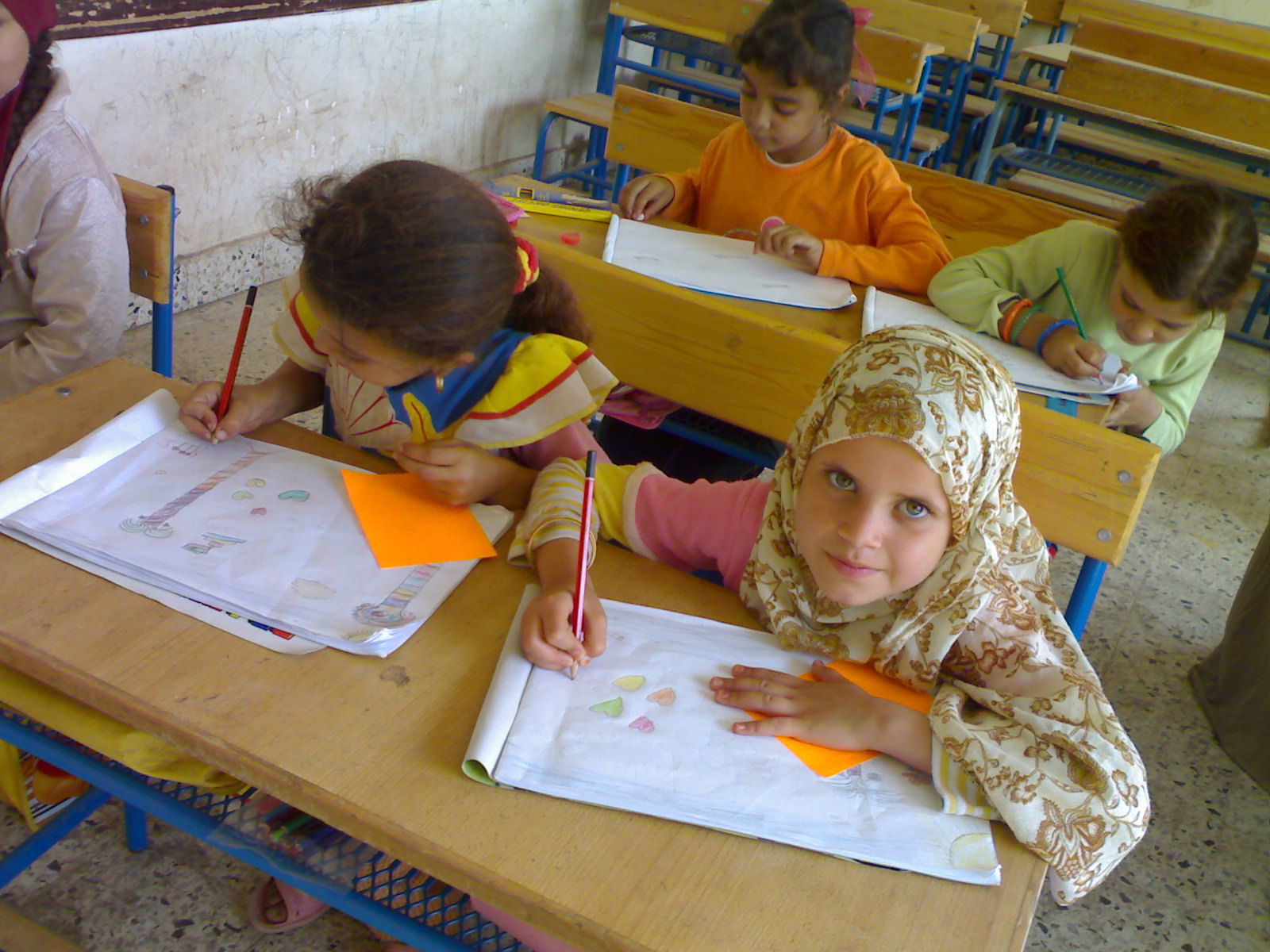In 2011, the Arab Spring gave Egyptians hope for real social change, in particular that a new political climate would permit overdue reforms of a deficient education system.
But three years later, education in Egypt still remains highly deficient, according to education professionals and experts who gathered this month at a panel on education at the Goethe-Institut Cairo.
In August 2011, Germany entered into a transformation partnership with Egypt to foster the country’s transition towards democracy, in particular to help introduce reforms in education.
As such, since 2012, the German foreign ministry has funded the expansion and redevelopment of several education projects in Egypt, both inside and outside of the school system, including specialist and advanced teacher training.

When professionals in Egypt’s education sector gathered on May 14 in Cairo to review the success of these projects so far, they agreed that much still remains to be done.
Illiteracy continues to be widespread. In 2012, there were up to 16 million illiterates in the country, most of them women, according to an estimate by Egyptian state’s Central Agency for Public Mobilization and Statistics (CAPMAS).
Despite article 19 of the new 2014 constitution declaring that the state shall “provide education in accordance with international quality standards” private education remains on the rise, both in terms of the number of schools and enrolment, due to the lack of quality education in the public system.
In addition, most university graduates struggle to find a job after graduating. Every year approximately 800,000 university graduates apply to 200,000 open positions in the job market, which means only every fourth person with a degree can find a job.
“A national development strategy for the public education system still has to be outlined,” Heike Thee, the education scout at the Goethe-Institut Cairo, said during the discussion.
Thee, who has been observing the Egyptian education system over the last two years, added: “Authoritarian structures in education are still a real challenge, and some schools still lack basic equipment.”
School and university students in general are not satisfied with education in Egypt, said Dr. Rania Roushdy, a senior researcher at the Population Council in Egypt, an international NGO that recently conducted a study on youth across Egypt.
Another Obstacle is that many of these young people are not even aware of the differences between colloquial Arabic and Modern Standard Arabic, added Ahmed Al-Hawary, journalist and founder of “Bashkatib”, a local NGO that trains young Egyptians in journalistic skills.
Most participants and panelists agreed that the Egyptian school curriculum does not include adequate civic education, something they expect from foreign institutions in Egypt.
“Egypt needs more cultural exchange, civic awareness and empowerment in society,” said Al Hawary. “We need more good dialogues.”
“We don’t need more resources, we need individuals who are able to use the [current] resources the right way,” said Yasmin Helal. Founder & Executive Director of the learning initiative Educate Me. “We need to ask ourselves: What can we do with the resources we already have? We need to change within the structures we have, otherwise change will never happen.”
Most participants agreed that the Goethe-Institut should support more art education in schools.
Art should be taught in schools, as the subject is vital to social change and education, explained Prof. Gamal Lamie, professor of Art and Art Education at Helwan University.

One reason behind violence on the streets is the lack of art in school education, agreed Dr. Nawal Shalabi, director of the National Centre for Curriculum and Instructional Materials Development.
Finally, many participants also agreed that society should give more value to vocational trading for blue-collar jobs.
In Egypt, despite the high demand for qualified craftsmen, society looks down on occupations that do not require a university degree. Most manual workers lack vocational training, and often learn their skills on the job.
Discussion participants included: Dr. Susanne Baumgart (Goethe-Institut Cairo), Dr. Nawal Mohamed Shalabi (Centre for Curriculum Development of the Ministry of Education), Dr. Rania Roushdy (Population Council Egypt), Ahmed Al-Hawary (Bashkatib), Yasmin Helal (Educate me), Prof. Gamal Lamie (Professor of Art and Education, University Helwan) and numerous other Egyptian and German education experts to discuss the German-Egyptian Education Cooperation program.






Comments (15)
Hi Joe – you hit it right on the head and know the “psyche” of Egyptians quite well … I was at the beginning often suprised to meet Pharma and Med Dr and … not one coherent sentence in English altough their studies are all in English! But don’t only blame Mubarak – he only continued what Sadat started. Look at those “elderly” Egyptians who had their education in the Egyptian governmental education system during the King and Gamal Abdel Nasser – outstanding. This were the times the Cairo University was high on the list of the top 500 Universities worldwide. And today they dropped from the list altogether …
Just hope that Pres Al Sissi will change the whole rotten system and fast for that matter! There’s not much time left …
I think Egyptians have to get over the pressure to force their children into obtaining degrees which are totally useless outside Egypt and in fields where there is a known shortage of real jobs. Training to be a doctor pharmacist or dentist is a complete waste of time if there is no job at the end of it and the only reason they do it is to be able to call themselves doctor.
Egypt is full of ‘doctors’ BUT their general education levels are VERY low. They know next to nothing about general knowledge, world affairs, or even locating countries on a map. It’s horrific to see the Egyptians graduating as ‘doctors’ and using it as some badge of prestige. I have no idea how they manage to pass exams of Medicine and Pharmacology etc in English when they can barely write a coherent sentence. It’s utterly terrifying and sad. Things have to change and more Egyptians have to train in trades like plumbers and carpenters so it can compete with other countries and increase foreign investment. I guess many countries would love to invest BUT they will never find a suitable workforce since there is no real qualified training in the trades. Egyptians simply cannot compete because from the start all their focus is on getting that degree to be able to tell their relatives and friends they are a Doctor. What a mess you left Mubarak!
I get what you mean, I study Computer Science and although I have great parents who respect that field others in Egypt dont. Whenever I tell a friend or relative about my choice (of being a programer rather than a Doctor) they look at me in disgust. They have no knowledge of what Computer Science is and how respected of field it is. They think that I will be fixing computers when I’m older but little do they know that I’m part time employed in Microsoft (as part of my course) and I will be earning more than a so called Doctor.
I’m not here to b!tch or to express my jealousy. I’m simply here to state that egyptians are ignorant when it comes to other jobs that are just as good if not better than those in Medicine. It’s getting out of hand and it needs to stop. The country cannot solely function on doctors alon. It needs engineers, scientists, programmers, businessmen (bankers, stock brokers, accountants) and most importantly artists who are frowned upon in Egypt and are seen as a joke.